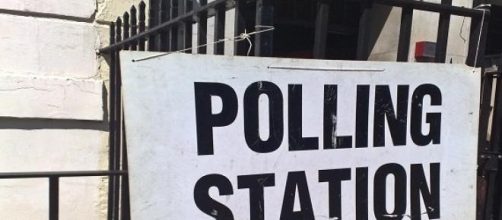The lead up to election season played out on April 2nd in front of our eyes as ITV hosted the Leaders' Debate, the single televised debate that pitched the three leaders of the main parties against each other. This time David Cameron, Ed Milliband and Nick Clegg were joined by UKIP's Nigel Farage, SNP leader Nicola Sturgeon, Leanne Wood from Plaid Cymru, and Natalie Bennett from the Green Party.
The first question was on the deficit. Clegg asserted that there should be a tax on those who earned the most, Cameron said he would find savings in spending, and Wood asked for the people to have a "bail out".
Farage championed an end to foreign aid, whilst Milliband sought a reversal of tax cuts for millionaires and Bennett asked for greater investment instead of cuts, with Sturgeon agreeing and proposing investment in infrastructure and public services.
On the NHS, Farage said UKIP would fund it by cutting the £3bn paid to the EU. Sturgeon said the SNP were opposed to privatisation of the Health Service while Clegg talked about investing £8bn. Wood acknowledged that Wales wanted to see it funded through taxation, while Cameron discussed how the Conservatives had employed more doctors. Labour tackled the Government on increased waiting times and failing cancer targets whilst proposing a £2.5bn care fund.
On Europe, Clegg talked about the good and bad sides of immigration. The Greens said that issue of overcrowding was down to government policy, not immigration. Farage was typically bullish about pulling out, whilst Cameron offered an in-out referendum after negotiation of Britain's terms. Both Wood and Sturgeon urged that if the UK were to leave, a separate decision should be taken for the individual countries.
The final question was about how to make today's young people feel optimistic about the future. Plaid Cymru wanted to offer free tuition for education in Wales, with the Greens wanting to include England and remove student loans. Labour pledged to reduce tuition fees to £6000 and end zero-hours contracts whilst Cameron heralded the 2 million jobs and 3 million apprenticeships created during his term in Government.
Clegg admitted to mistakes regarding tuition fees but hoped he would be remembered for his "pupil premium" and raising the tax threshold. Sturgeon said it was shameful that those who have benefited from free education are now asking others to pay and that education should be on "the ability to learn, not the ability to pay."
The biggest winners were probably Nicola Sturgeon who according to You Gov won outright with 28%. Nigel Farage secured an average across the polls of 21%, slightly behind Ed Milliband's 21.5% and David Cameron at 22%. Over a million and a half tweets cast were cast with Nigel Farage the most commented upon, with 5,400 tweets per minute, whilst Natalie Green saw a surge in Twitter followers after the event.
More than seven million people tuned in to view the debate in total. If the debate can get more people engaged in the lead up to the elections, perhaps that will be the biggest victory of all.

